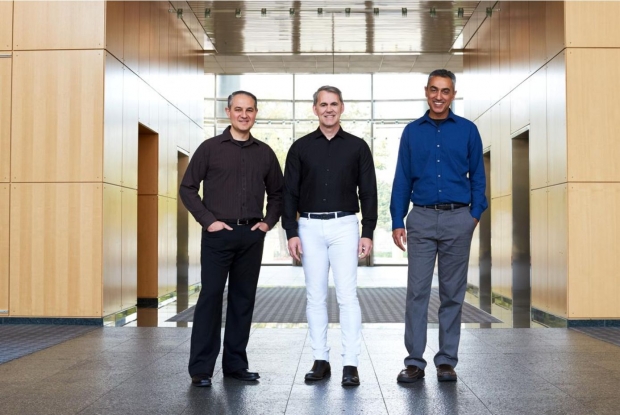The company was founded by John Bruno, Manu Gulati, and Gerard Williams III, who have collectively driven system engineering and silicon design for more than 20 chips, with more than 100 patents granted to date. The capital will help Nuvia expand from 60 to more than a 100 employees by the end of the year.
John Bruno
John Bruno is the co-founder of Nuvia, ex ATI, AMD, Apple and Google engineer who understands system and performance. One of his jobs at Apple was to form the performance analysis group that helped Apple stay ahead of the competition for most parts of the platform. We've known Bruno for decades as a distinguished and capable engineer. His last job at AMD was a chief engineer for Trinity Fusion APU, before going to Apple. John Bruno is the SVP of System Engineering at Nuvia.
Manu Gulati
The second co-founder, Manu Gulati, is an ex-Google engineer who was playing a key role in defining the company’s silicon and product roadmaps. That sounds like a big job. Previously he was at Apple where he built numerous SoCs for the company, and before that he did the same job for Broadcom. He is an ex-AMD guy too. Apple did quite well with most of its SoCs. Manu Gulati is the SVP of Silicon Engineering.
Gerard Williams III
The Co-founder and the CEO is Gerard Williams III. Just go and read the article from September this year, and you will learn that Gerard built the A13 and the one after that - let's call it A14 - for Apple. After that, he decided to start Nuvia with the other two guys mentioned above. Let’s not call Nuvia a startup, as the company is a well-funded startup.
Gerard built most A-series SoCs for Apple. He is a CPU guy, and we all know that CPU Apple cores perform better than the rest of ARM's competitors. Before a decade at Apple, Gerard worked as a fellow in ARM serving on the ARM Architectural Review and Technical Advisory Boards. At the beginning of his career, he worked at Intel and Texas Instruments. Yes, I've met him personally.
They all worked at Apple at one point, which is the common denominator.
“The world is creating more data than it can process as we become increasingly dependent on high-speed information access, always-on rich media experiences and ubiquitous connectivity”, said Gerard Williams III, CEO, Nuvia. “A step-function increase in compute performance and power efficiency is needed to feed these growing user needs. The timing couldn’t be better to create a new model for high-performance silicon design with the support of a world-class group of investors."
Nuvia is funded by the Capricorn Investment Group, Dell Technologies Capital, Mayfield, Nepenthe LLC, and WRVI Capital who have all participated in the Series A Investment Round. If these names don’t ring any bells, remember that Capricorn’s Technology made some early investments in Tesla and Space X, amongst others, and the fund has its roots in the Capricorn Investment Group, a $5 billion investment firm.
Dell Technologies Capital invests around $100 million a year, and so is quite acute about the possibilities of Nuvia.
Mayfield is a global venture capital firm that likes to invest in early-stage companies and has $1.8 billion in funds under management.
WRVI Capital is a venture capital firm that invests in exceptional entrepreneurs and disruptive technologies. All the companies mentioned above have significant funds.
Takes 2 to 3 years
Now back to reality. The platform and chip that these guys are building will take several years. Based on our knowledge of the industry, it takes more than two years, closer to three, to build something from the ground up. The platform and chip that these guys are building will show up by 2022.
One thing is for sure, the data consumption continues to grow, and companies like Ampere, who tried to disrupt the server market with ARM-based servers didn’t do the job. The sad part is that Qualcomm had a great data center ARM-based chip but decided to scrap the project
I am sure we will hear more about Nuvia, as this sounds like a company that will do well and has a good chance of disrupting the datacenter game.




